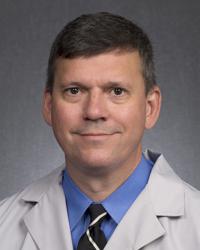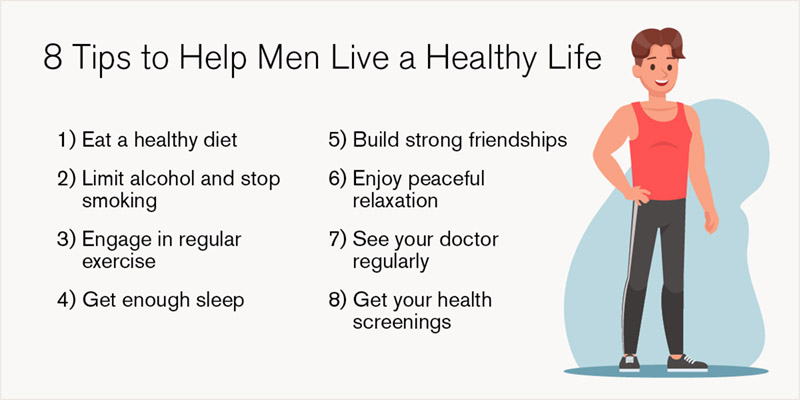 By Christopher Gonzalez, MD, Urology
By Christopher Gonzalez, MD, Urology
Men experience different health challenges as they grow older. But no matter the age, it is important for men to take control of their overall health and wellbeing.
Maintaining a healthy lifestyle takes a commitment not only to eating healthier, exercising consistently and managing stress, but also getting recommended health screenings.
Establishing a strong partnership with a primary care provider or a men's health specialist is an important first step in prioritizing preventive health.
The urology specialists at Loyola's Men's Health Center offer many lifestyle tips, recommendations and screenings to help you make each decade the healthiest it can be.

Men in their 20s
At a younger age, it can be difficult to adopt healthy habits. Most men are at the peak of their physical health in their 20s. Making good lifestyle choices is key to maintaining this level of health and wellness for the rest of your life.
It is important to find a primary health care provider to discuss family medical history or any other medical concerns.
It's easier than ever to schedule an appointment with a board-certified Loyola Medicine primary care physician using our online tool, myLoyola, today.
Men in their 20s should ask their doctor to screen for:
Men in their 30s
A man's 30s can be an exciting and stressful time. From fatherhood, to home ownership to career ambitions, it is vital to make your health a priority.
It is critical to keep a clean and healthy diet during your 30s because metabolism can slow down as you age, and you might even notice a couple extra pounds around your abdomen. Having a healthy diet can also help avoid unnecessary health issues in the future.
It is also important to make sure you are keeping up with physical exercise. Activities such as yoga and Pilates can help maintain and increase flexibility.
Men in this age range should make sure they are meeting with their health care provide to discuss screening for:
- High blood pressure
- High cholesterol
- Testicular cancer
Men in their 40s
As you navigate your 40s you may notice changes in your appearance and health. Your heart and bones can be impacted in many ways, and you may start losing muscle mass.
Because of this, it's important to incorporate physical activities that will help build muscle, such as strength training.
Getting seven to nine hours of sleep is also key for men, as well as staying hydrated with water and limiting alcohol consumption.
Men in their 40s should meet with their physician annually to discuss screening for:
- Diabetes
- Heart disease
- High cholesterol
- Thyroid disease
- Prostate cancer screening
African American men, and those men with a family history of prostate cancer should have a discussion with their physician about PSA screening.
Men in their 50s and beyond
Men may notice many changes in their 50s. It is common to experience hair loss, weight gain in the midsection, and fluctuations in libido due to a dip in testosterone.
Men in this age range should be aware of these changes and take steps to focus on their physical and mental health. Staying fit and keeping up with physical exercise should be a top priority. Also getting involved in low impact exercises such as yoga, golf and weight training can be beneficial.
Having a good diet will not only help you keep off the extra pounds, but it can also help slow down the aging process and help prevent many diseases. Eating high omega-3 fatty acids can help slow aging. Foods high in omega-3 include fish, peanut butter and flax.
As you reach age 50 and beyond, it is important to keep your health care provider updated with any new symptoms or concerns, such as a change in sexual function, muscle mass and eyesight.
Men in their 50s should ask their doctors about screening for:
- Blood pressure
- Colon cancer
- Diabetes
- Heart disease
- High cholesterol
- Prostate cancer
No matter the age, it is vital that men make their health a priority in order to live a healthy and happy life. Be sure to schedule regular health checkups with your primary care physician and put your focus on living a healthy lifestyle.
Christopher Gonzalez, MD, is a urologist and is the department chairperson of urology at Loyola Medicine. His clinical interests include a focus on men's health and male-specific health conditions.
Dr. Gonzalez earned his medical degree at the University of Iowa Carver College of Medicine. He completed an internship and residency at the McGaw Medical Center of Northwestern University.
Book an appointment today to see Dr. Gonzalez or another Loyola specialist by self-scheduling an in-person or virtual appointment using myLoyola.

